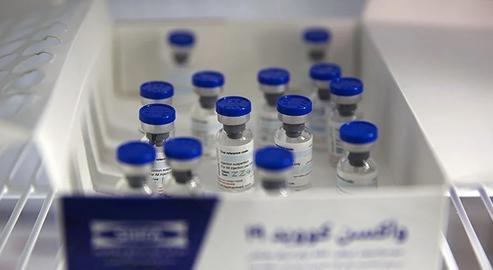“Iranian people are not laboratory mice.”
Over the past 11 months, officials of the Islamic Republic have obsessively repeated this claim to justify the non-acceptance of support from the West in battling coronavirus, up to and including the procurement of US and UK-made vaccines.
On January 10, however, it emerged that human clinical trials on Iranian subjects will in fact be run in the country by Cuban scientists, with the full consent of the Iranian government.
Mostafa Ghanei, chairman of the National Coronavirus Taskforce’s scientific committee, admitted: “In recent months the Islamic Republic has informed every country that it would not allow any vaccine to be tested on Iranians, unless the vaccine is made inside the country.” But he went on to explain that since Cuba has agreed to manufacture its vaccine within Iran, the Islamic Republic has accepted that this product can be tested on Iranian subjects after all.
Phase I of clinical trials for a Cuban vaccine are already complete and Phase II is currently being conducted in the Latin American country under the supervision of Iran’s Pasteur Institute. Kianoush Jahanpour, speaking on behalf of Iran’s Food and Drug Administration, had said on January 9. “If Phase II is successful, then Phase III will be carried out in Iran.”
The Cuban-made vaccine, called “Soberana 01” (“Sovereign 01”), is developed by the country’s state-owned Finlay Institute. The second phase of clinical trials was due to conclude on January 11. The third phase would involve control groups and monitoring for side effects.
Iran is one of more than 180 countries that have signed up to COVAX, an initiative co-led by the World Health Organization which aims to provide equitable access to Covid-19 tests, treatments and vaccines. Before the Supreme Leader Khamenei’s ban on importing American and British-made vaccines Iran had made a down payment via COVAX for more than 16 million doses. As of now, the WHO has only approved the Pfizer-BioNTech vaccine for sale through COVAX, meaning the fate of this consignment is not clear.
However, Mr Ghanei appeared unfazed by the ban, going on to say on January 10 that COVAX had received the money and the Food and Drug Administration was “following up” on plans for importation. He said the inoculation of frontline medical staff and health workers would be the first priority, followed by Iran-Iraq war veterans affected by complications from chemical weapons, high-risk groups and the elderly.
Ghanei added that widespread vaccination would get under way once “the vaccine is produced”, presumably referring to the Iranian-made “CovIran-Barekat” vaccine, which is currently in Phase I of clinical trials with fewer than 60 volunteers involved. The doses purchased through COVAX alone will only be enough to protect eight million Iranians, or around 10 percent of the population.
Two days after Khamenei’s abrupt ban on US and UK-made vaccines, Health Minister Saeed Namaki spoke in support of the Supreme Leader and, as usual, complained that US and its sanctions have been the main obstacle to buying test kits and other medication during the pandemic. “How can the leader of a country that has been the subject of this injustice believe that the US... would donate vaccines to us?” he said. “No sane mind could believe this.”
In the meantime, the fourth case of infection from the new strain of SARS-CoV-2 discovered in Britain has been confirmed in Iran.
Provinces Round-up
With the death of another Covid-19 patient in Alborz, the officially-recorded coronavirus death toll in the province reached 2,613 on January 10. In the past 24 hours, 33 patients with coronavirus symptoms were hospitalized in Alborz and currently 283 suspected and confirmed Covid-19 cases are in hospitals across the province.
In Qazvin, west of Alborz, one confirmed Covid-19 patient died, 40 new patients tested positive and 22 of them were admitted to hospital. Currently 180 Covid-19 patients are hospitalized across Qazvin and the death toll in the province since the coronavirus outbreak now stands at 1,243.
In Zanjan, two more Covid-19 patients died and the recorded death toll in the province has now reached 1,107. Some 164 coronavirus patients are presently being treated in hospitals across the province.
In Yazd, which is in a yellow state of alert, 159 patients with coronavirus symptoms are in hospital, 56 of them in intensive care units. In the past 24 hours Yazd recorded one Covid-19 fatality.
Iran’s Latest Coronavirus Statistics
In her daily briefing for January 10, health ministry spokeswoman Dr. Sima Sadat Lari announced the official coronavirus statistics for the past 24 hours:

visit the accountability section
In this section of Iran Wire, you can contact the officials and launch your campaign for various problems




























comments